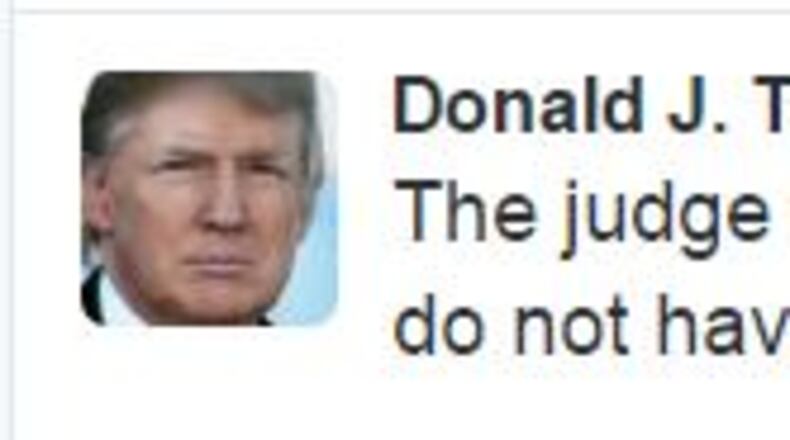The legal battle over President Trump's immigration order rumbled into Super Bowl Sunday, as Justice Department lawyers overnight urged a federal appeals court to lift a stay issued by a federal judge against the Trump order, arguing the President clearly has the authority to "suspend the entry of any class of aliens" into the United States.
"The injunction immediately harms the public by thwarting enforcement of an Executive Order issued by the President, based on his national security judgment," reads part of the federal petition.
Citing a federal judge's ruling from Massachusetts that left the Trump order in place, the feds argue the President's plan "is a lawful exercise of the political branches' plenary control over the admission of aliens into the United States."
Credit: Jamie Dupree
Credit: Jamie Dupree
The Justice Department requested an immediate stay of the order of Judge James Robart from Washington State, who on Friday night put the entire Trump immigration order on hold - but a pair of judges on the Ninth Circuit refused to immediately grant that request.
Instead, the judges issued a legal schedule that will have lawyers on both sides working through some of Super Bowl Sunday on briefs; the states of Washington and Minnesota must respond to the Justice Department by late Sunday night.
The Justice Department will get until later on Monday to reply, as the Ninth Circuit refused to issue an immediate stay of the judge's original order.
Credit: Jamie Dupree
Credit: Jamie Dupree
In their over 100 page submission to the appeals court, the Justice Department argues the injunction by Judge Robart is "vastly overbroad," arguing that Washington State and Minnesota have no standing to bring this challenge to the Trump immigration order in the first place.
"As the President acted well within both statutory and constitutional authorization, the relief irreparably harms our system of government by contravening the Constitution’s separation of powers," the brief states.
The Justice Department arguments also include the ruling of a federal judge from Massachusetts that came down on the side of President Trump, one that he referenced on Saturday while venting his frustration about the stay of his immigration order.
"Congress has granted the President authority to suspend entry for any class of aliens if such entry would be 'detrimental to the interests of the United States,'" wrote Judge Nathaniel Gorton on February 3.
One bottom line from the Justice Department is that Judge Gorton was on point, while Judge Robart was not.
"Judicial intrusion on the political branches’ exclusive authority over the admission of aliens, by violating the separation of powers, in itself constitutes irreparable injury," the Trump Administration argues.
The President's executive order, issued on January 27, suspends any entry for 90 days of people traveling from seven specific countries, and puts on hold for 120 days the U.S. refugee program. The order also would not allow any entry of refugees from Syria.
About the Author
The Latest
Featured





